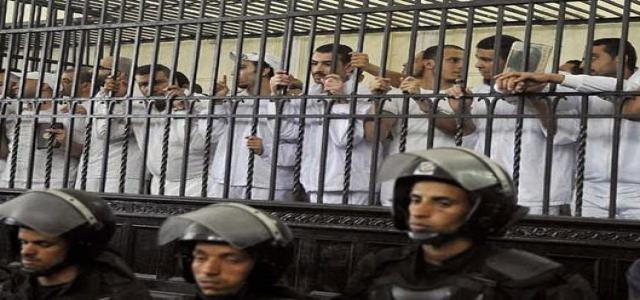- Other Issues
- May 10, 2010
- 6 minutes read
Corruption report not too positive for Middle East

Anyone familiar with the Middle East knows all too well that corruption is one of those conundrums that seems to get worse year after year as government and business continue to jump into bed together. A new report from Transparency International (TI) says there is a glimmer of change in the region, but overall, the situation is not looking optimistic.
Many NGOs and activists in Egypt and Lebanon point to corruption as the number one source of lack of progress. They often tell of government officials and businesspeople linked to ruling parties involved in cronyism, giving contracts to their “friends” in the name of development.
This, they argue is at the core of the problems facing the region and only through an assertive push to limit cronyism and corruption can the region make a leap forward.
“We have all seen the struggle between Main Street and the business leaders here in Lebanon and elsewhere, so it is important to keep talking about how corruption devalues society and makes it difficult for people to function,” said Nizar Bishara, a Lebanese government consultant.
TI says that in their most recent study, published on May 9, Egypt, Lebanon, Morocco and Palestine “have in common very weak integrity systems, containing major gaps in legal anti-corruption provisions.” This is what makes tackling corruption difficult.
The most common problem facing each country is the lack of law, which makes checking the executive branch of government extremely difficult and an arduous process. What they argue needs to happen is a change in mindset coupled with reform of legislation to give corruption more stringent penalties, including jail time.
“In addition, vertical accountability processes, i.e., the power of citizens to hold the powerful to account, are largely absent,” the report read. “Egypt, and, to a lesser extent, Morocco still lack many democratic rights and institutions, while Palestine and Lebanon’s political cultures are highly polarized and dominated by informal patronage systems, which undermine the performance of the existing formal governance institutions.”
Here in Cairo, analysts believe that through more efforts such as TI’s, governments will come to realize the need for transparency, especially when attempting to attract trade partners from Europe or the United States.
“We do have a problem with transparency in this country,” said former head of Egypt’s Information Technology Industry Development Agency (ITIDA) Mohamed Omran. He argues that if Egypt is to make good on its promises to its people and the world, corruption must be one of the first issues tackled.
Progress, Omran said, could not come without sacrifice. “Government officials and the businessmen involved with them, must agree to cut back on under the table agreements and start working toward a fair and open market. This will benefit all sides, including how the country is governed.”
Despite the negative, TI did indicate that there are signs of growth in combating corruption. They pointed to the late 1990s, when studies showed that legislation was nowhere to be seen and reforms were unheard of. Now, over a decade on, governments are beginning to see the need to reform in order to make modernization and progress a priority.
“In all countries studied, governments have initiated major anti-corruption programs, established specific oversight institutions, such as anti-corruption agencies and electoral commissions, and drafted important pieces of anti-corruption legislation,” the report said.
For the average citizen in Egypt, for example, they believe it is difficult to break down the walls that corruption has erected in the past half-century. Sherif Abdallah, a local fisherman in Cairo, told Bikya Masr that while he worked in a government ministry for 15 years “there was no sign that the elite would stop getting what they want. All they had to do was put a few hundred pounds under the table and the deal would be secured.”
The fact that this continues, in Egypt and elsewhere, is part of the problem, TI said. They said that because individuals are afraid of the consequences of reporting corruption, whistleblowers have yet to go public.
“Here, the absence of whistleblower protection mechanisms and, apart from in Lebanon, extremely weak provisions regarding public access to information, are most noteworthy,” the report added.
Omran agreed, arguing that with the advent of an Arabic Internet portal, this could all change for the better.
“If people are able to use Arabic for all their needs, then we will certainly see a larger percentage of people looking for the things that affect them, and the judgment and decision-making of our government and business leaders will be forced to be more open and transparent. It takes time, but this will happen,” he argued.
TI is a global NGO focused on corruption. It “raises awareness of the damaging effects of corruption and works with partners in government, business and civil society to develop and implement effective measures to tackle it.” Republished With Permission FromBikya Masr



